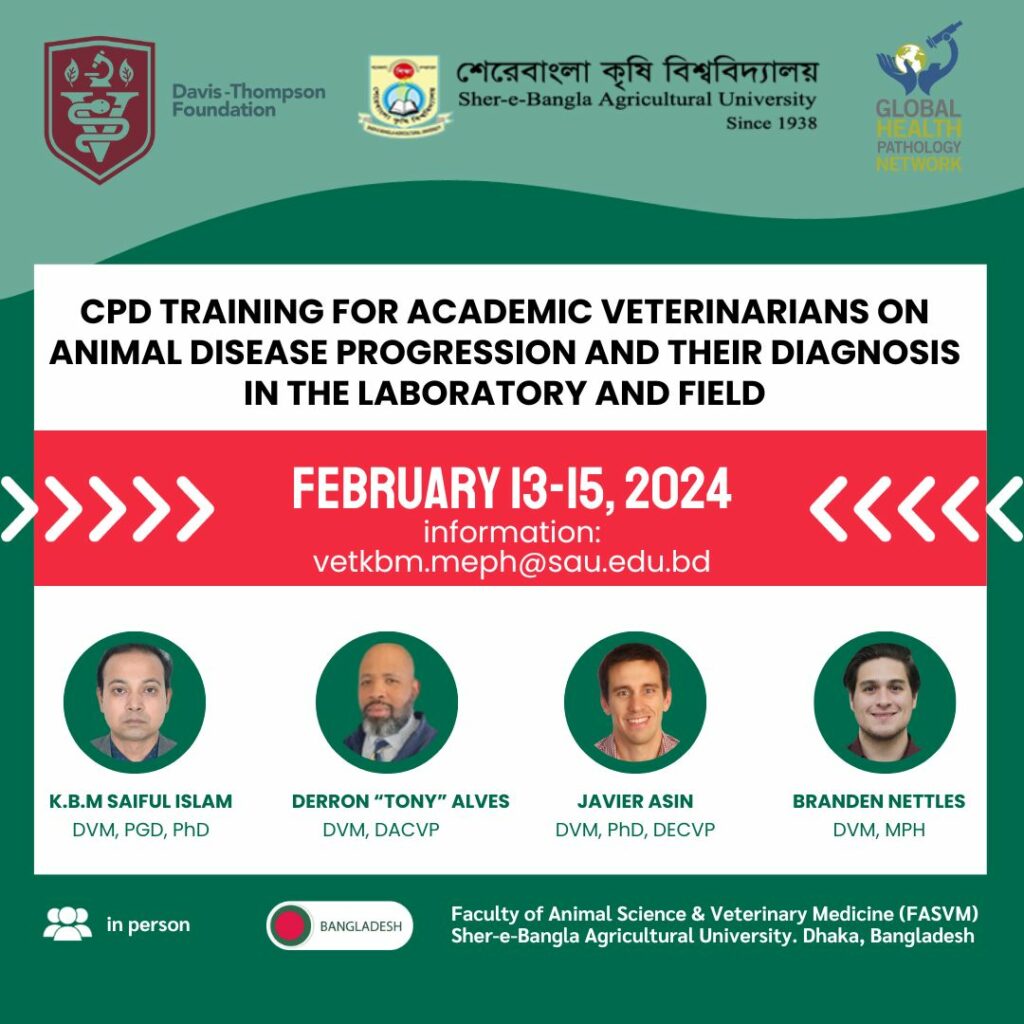
- This event has passed.
CPD Training for Academic Veterinarians on Animal Disease Progression and Their Diagnosis in the Laboratory and Field
Sher-e-Bangla Agricultural University, Dhaka, Bangladesh
February 13, 2024 @ 9:00 am – February 15, 2024 @ 5:00 pm Dhaka, Bangladesh
Background
Veterinary Medicine is a central and applied discipline that bridges many other disciplines of veterinary science. It connects the basic sciences to the clinical sciences and is key in diagnostics. By appreciating the basic mechanisms of disease, and how they function in each organ system, professionals can better know the clinical disease and can more effectively use gross findings to render a diagnosis, and/or select relevant tissues and the tests to perform. This continuing professional development (CPD) training will focus on the disease progression mechanisms, describing lesions, and using critical thinking skills to create a list of differential diagnoses. Participants will practice performing postmortem examinations (i.e. necropsies) on mammalian species (privately owned animals or small ruminants) and/or other animal species (e.g, poultry), writing a complete necropsy report, and packaging samples for transport to the laboratory. The connections between the field and the laboratory (to include veterinary public health) will be reinforced, helping both field veterinarians and laboratorians to solve disease problems in the field in a concerted manner.
Facilitators:
Dr. Javier Asin, UC-Davis
Dr. Derron A. Alves, NIAID/NIH
Dr. Branden Nettles, UNDP
Learning Objectives
At the end of the workshop, participants will be able to:
- Explain basic mechanisms of disease, write lesion descriptions and morphologic diagnoses, create list of differential diagnoses.
- Perform a necropsy mammal (or avian), with collection and packaging of tissues in an appropriate manner for use in the laboratory.
- Enhance diagnostic capacity through a more thorough understanding of the field-lab connection.
- Strengthen critical thinking ability to make precise diagnoses and plans for treatment strategies.
- Improve confidence on making conclusions on disease progression, diagnosis, and treatment strategies in the field.
For additional information, please contact: vetkbm.meph@sau.edu.bd
Facilitators:
Dr. Javier Asin, UC-Davis
Dr. Derron A. Alves, NIAID/NIH
Dr. Branden Nettles, UNDP
Training Coordinator:
Professor Dr. K. B. M. Saiful Islam, Dean, FASVM, SAU
Schedule
| February 12th, 2024 | Opening ceremony, Introductions Adult Learning Principles How National Animal Health Systems Operate Basic mechanisms of disease – Utilizing group work, with lesion description, morphologic diagnoses – disturbances of circulation, cell injury Necropsy of a chicken, pet species, or small ruminant |
| February 13th, 2024 | Basic mechanisms of disease – Utilizing group work, with lesion description, morphologic diagnoses – disturbances of circulation, cell injury Inflammation – Role of cell types, exudates, morphologic diagnoses – scenarios, exercises, experiences Disease pathogenesis, selected diseases (group work, using prepared scenarios) Necropsy of a chicken, pet species, or small ruminant |
| February 14th, 2024 | Lecture by a SAU representative Disease pathogenesis, selected diseases (group work, using prepared scenarios) Evaluations and closing ceremony |
| February 15th, 2024 | Engagement with students and faculty |

